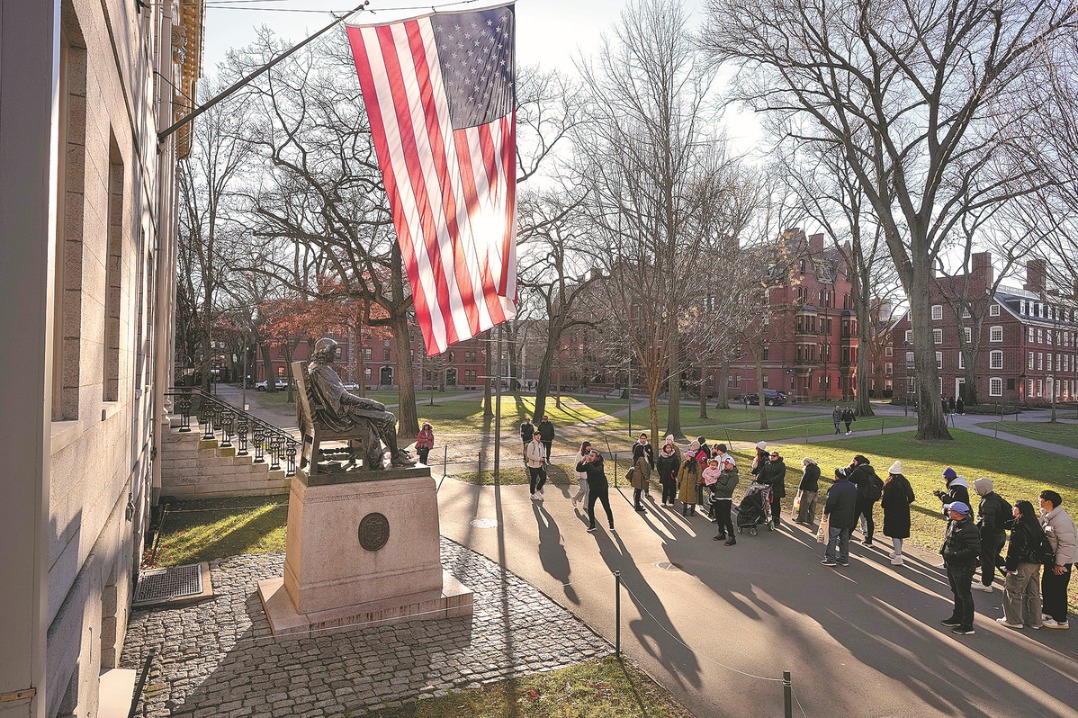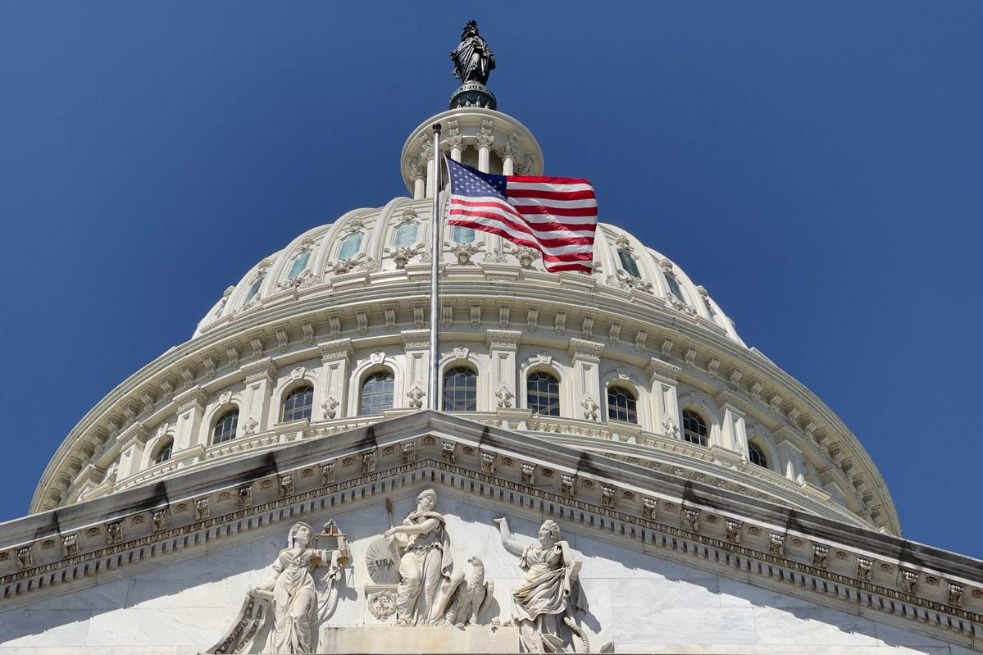Harvard's stand to protect academic freedom


Harvard amended its lawsuit, which was filed last month in the United States District Court for the District of Massachusetts, against the US administration on Tuesday to account for the most recent round of cuts to research funding, bringing people's attention back to the dispute between the oldest university in the country and the administration. The university accuses the administration of violating the First Amendment and attempting to "gain control of academic decision-making at Harvard" by threatening to cut billions of dollars in research funding to the university.
Harvard's move has escalated the ongoing row between the US' higher education sector and the government, intensifying Harvard's fight, as the representative of US universities and education traditions, against the incumbent administration.
The row began when it proposed reforms to higher education that Harvard and some other universities vehemently opposed. Unlike Columbia and other universities that complied with the policies, Harvard challenged the administration's interference in its academic freedom, prompting the administration to freeze $2.2 billion in funding for Harvard, and threaten to block more funding to the university and revoke its tax-exempt status.
The White House also ordered multiple investigations into Harvard's operations and threatened to change the enrollment process for foreign students, challenging Harvard's core interests and drawing strong criticism from Harvard alumni, the academic community as a whole as well as the general public.
The administration's accusation that some US universities promote anti-Semitism is merely a cover for broader, more systemic attacks on universities' autonomy. The six "demands", including those for academic reviews and ideological reforms, exceed the scope of anti-Semitism, striking at the heart of the values — independent thought and academic excellence — on which institutions like Harvard are based. As Harvard President Alan Garber said, "It makes clear that the intention is not to work with us to address anti-Semitism in a cooperative and constructive manner … the majority represent direct governmental regulation of the 'intellectual conditions' at Harvard."
Harvard's fight against the government has deeper significance. If the university succumbs to its coercion, it would not only damage its centuries-old reputation but also signal a dangerous return of "McCarthyism" and "de-liberalization" in US universities. As former US president Barack Obama said, "Harvard has set an example for other higher-ed institutions — rejecting an unlawful and ham-handed attempt to stifle academic freedom."
Harvard's academic prestige and extensive networks have provided it with the economic and political leverage to challenge the government's unjust moves. As of 2024, Harvard had an endowment fund of $53.2 billion. After the administration froze its funding, most of Harvard's alumni supported it by increasing donations to the university.
Besides, Harvard's vast network of alumni, influential in politics, business and law, has rallied behind the university. The day after the lawsuit was filed, a number of US colleges and universities, including Cornell and Princeton, jointly published an open letter condemning the White House's "political interference" in higher education and the "coercive use of public research funding". Harvard has galvanized mainstream US universities into opposing the administration's arbitrary moves, and its lawsuit, irrespective of its outcome, will have far-reaching consequences for the US government's relations with universities.
The incident is a microcosm of the deeper political and cultural divisions in the US. The incumbent administration represents certain conservative factions, while universities such as Harvard are seen as strongholds of liberal thought, with the row between the US government and Harvard highlighting the deep rifts between US political factions and interest groups.
Despite US Secretary of Education Linda McMahon's attempts to justify the administration's move by claiming the funds were frozen due to civil rights issues, it is clear that this is ultimately a battle for power, not least because Harvard and other universities advocate for diversity and inclusivity, ideals that are at odds with the White House's policies.
Moreover, higher education institutions and academic elites are often seen as supporting the Democratic Party, and the government seeks to weaken their influence by targeting universities, shifting the educational discourse in its favor, and using academic platforms to promote its policies.
For universities such as Harvard, politicizing academic institutions is a dangerous trend. Education should remain free from bureaucratic control, and campuses should not become overly politicized. When US Secretary of the Department of Homeland Security Kristi Noem demanded that Harvard share information on "illegal and violent activities" of foreign student visa holders and threatened to revoke Harvard's right to enroll foreign students if it didn't comply, Garber responded saying, "No government — regardless of which party is in power — should dictate what private universities can teach, whom they can admit and hire, and which areas of study and inquiry they can pursue."
The situation for foreign students in the US mirrors Harvard's plight. In the weeks leading to April 19, the US administration had revoked hundreds of international students' visas, with many of those being Chinese students. More than 100 affected students, inspired by Harvard, have now filed lawsuits against the administration to protect their rights.
According to US official data, foreign students contributed about $50 billion to the US economy in 2023, with Chinese students making up the largest share. The amount doesn't even include the academic, social and political contributions made by students from China, India and other countries. Yet these students have been subjected to unjust treatment. Foreign students in the US are facing an early "winter", which could be long and harsh.
The author is an associate researcher at the Institute of American Studies, Chinese Academy of Social Sciences.
The views don't necessarily reflect those of China Daily.
If you have a specific expertise, or would like to share your thought about our stories, then send us your writings at opinion@chinadaily.com.cn, and comment@chinadaily.com.cn.


































